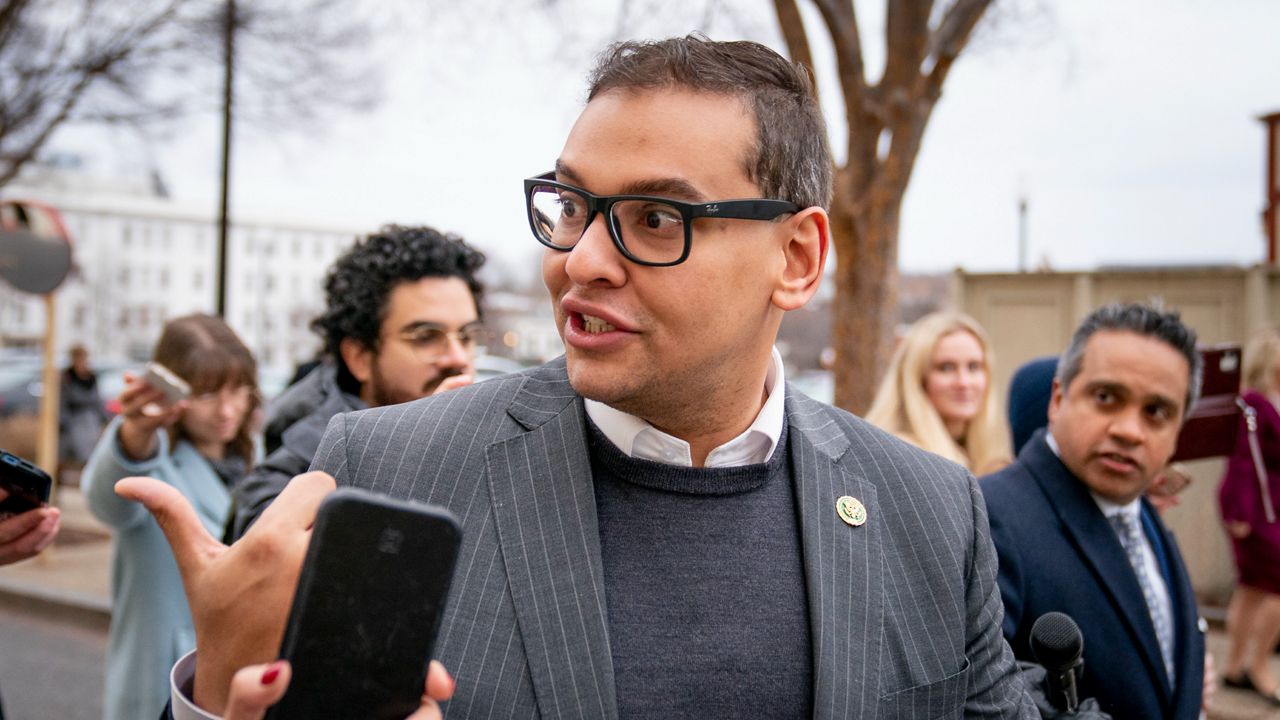The House Ethics Committee announced Thursday the opening of an investigation into embattled Republican Rep. George Santos, the New York congressman whose lies and embellishments about his resume and personal life have drawn intense scrutiny.
The research seems far-reaching. It seeks to determine whether Santos “may have engaged in unlawful activities in connection with his 2022 campaign for Congress,” among other actions, the committee said in a statement.
The panel will also investigate whether Santos “failed to adequately disclose the information required in the statements filed with the House, violated federal conflict of interest laws in connection with his role at a company that provides trust services, and/or engaged in inappropriate sexual conduct.” toward a person seeking employment in his congressional office,” the statement said.
Santos had already withdrawn from the committees to which he was assigned, but has otherwise rejected calls by New York Republicans for him to resign.
On Twitter, his office said it is “fully cooperating” with the ethics investigation and declined to comment further.
Ethics Committee members David Joyce, an Ohio Republican, and Susan Wild, a Pennsylvania Democrat, will lead the investigation, along with two other lawmakers from each party. The panel had unanimously voted to create a subcommittee to investigate the allegations.
“The Committee notes that the mere fact of establishing an investigative sub-committee does not by itself indicate that any violation has occurred,” said Thursday’s statement.
The commission could take a number of actions, from a letter of reprimand to recommending censure and a fine.
It can also recommend expulsion, the harshest form of punishment the House can impose, an action it has used only five times in more than two centuries and never for conduct that occurred before a member was sworn in. At least two thirds of the Chamber must vote in favor of the expulsion for it to take place.
Any recommendation would form part of a committee report setting out the evidence supporting its conclusions and an explanation of the reasons for the recommended sanctions.
A Long Island prosecutor has already been investigating whether Santos defrauded supporters. The Federal Election Commission has repeatedly pointed to problems with Santos’ campaign financial reporting.
Santos admitted that he lied about key aspects of his record, such as his work experience and college education, after The New York Times cast doubt on his life story he presented during his campaign in December.
“My sins here are embellishing my resume. I’m sorry,” Santos told the New York Post following the Times report.
Santos said he had earned a degree from Baruch College in New York, but the school said that could not be confirmed. Santos had also said that he had worked for Citigroup and Goldman Sachs, but neither company could find records to verify this.
An American Jewish news outlet, The Forward, disputed a claim on Santos’s campaign website that his grandparents “fled Jewish persecution in the Ukraine, settled in Belgium, and again fled persecution during World War II.” ”.
“I never claimed to be Jewish,” Santos told the Post. “I am Catholic. Since I found out that my maternal family had a Jewish background, I said that I was ‘Jewish.'”
Perhaps the most serious questions facing Santos involve the personal fortune he claims to have used to finance his campaign.
Since announcing his candidacy in 2021, Santos reported having loaned his campaign organization $705,000, representing nearly 25% of his income over the past two years.
The underlying question remains how Santos earned the money. Despite his false claims to have worked for large international banks, until a few years ago he struggled financially that led to multiple apartment eviction proceedings in New York City.
When Santos first ran for Congress in 2020, his financial disclosure form listed a modest salary of $55,000 from a finance company and no significant assets.
After losing that election, he took a job selling investments in a company that the Securities and Exchange Commission later accused of being a Ponzi scheme.
Last summer, Santos filed a financial disclosure report that suggested an explosion in his personal wealth.
Santos reported that he earned $750,000 per year with his own company, the Devolder Organization, had savings of $1 million to $5 million, and owned an apartment in Brazil worth up to $1 million.
Santos has yet to fully answer the questions about how he got so rich so quickly.
In an interview with Semafor, Santos said he worked as a consultant for “high net worth individuals,” helping to negotiate the sale of luxury items such as yachts and planes.
